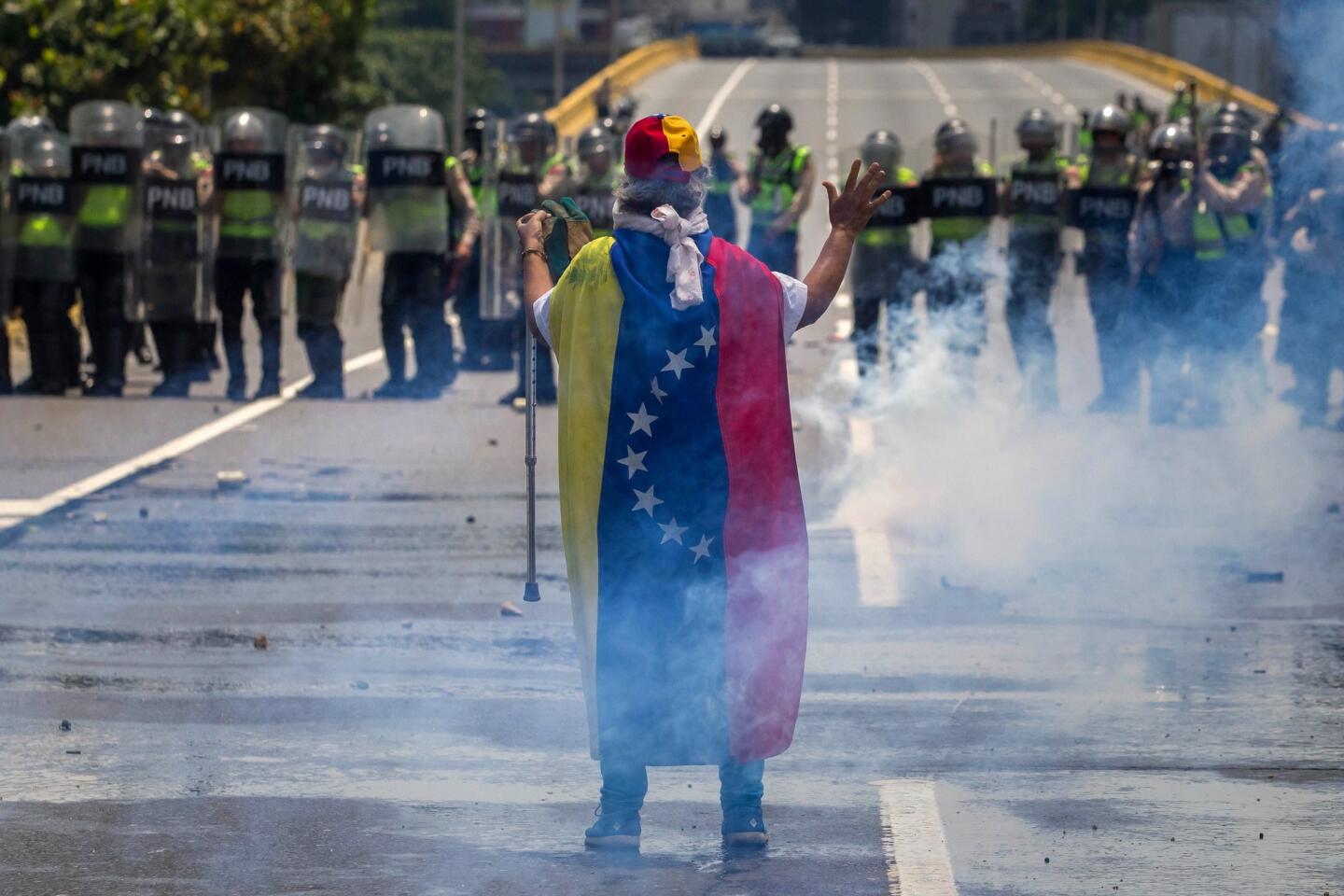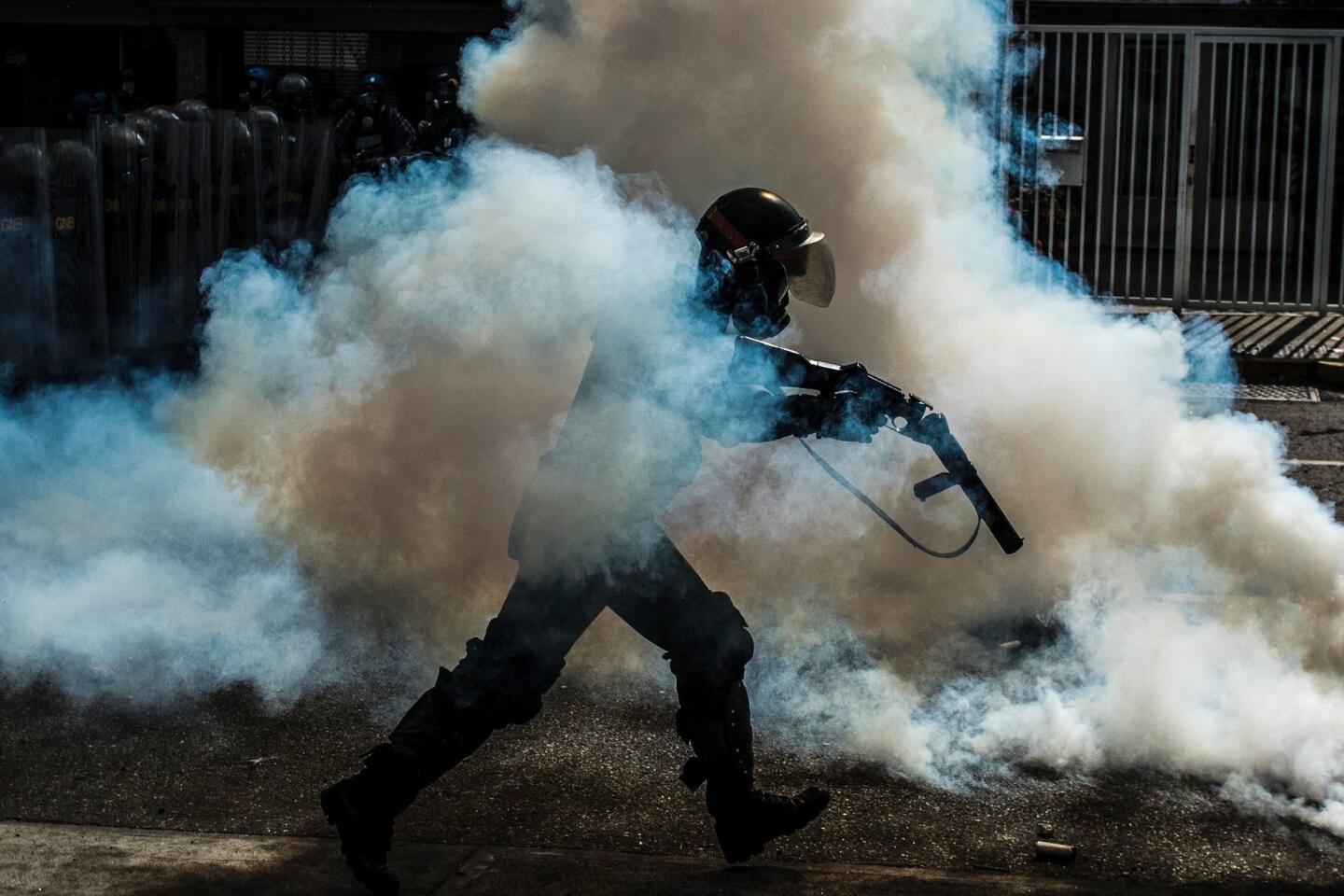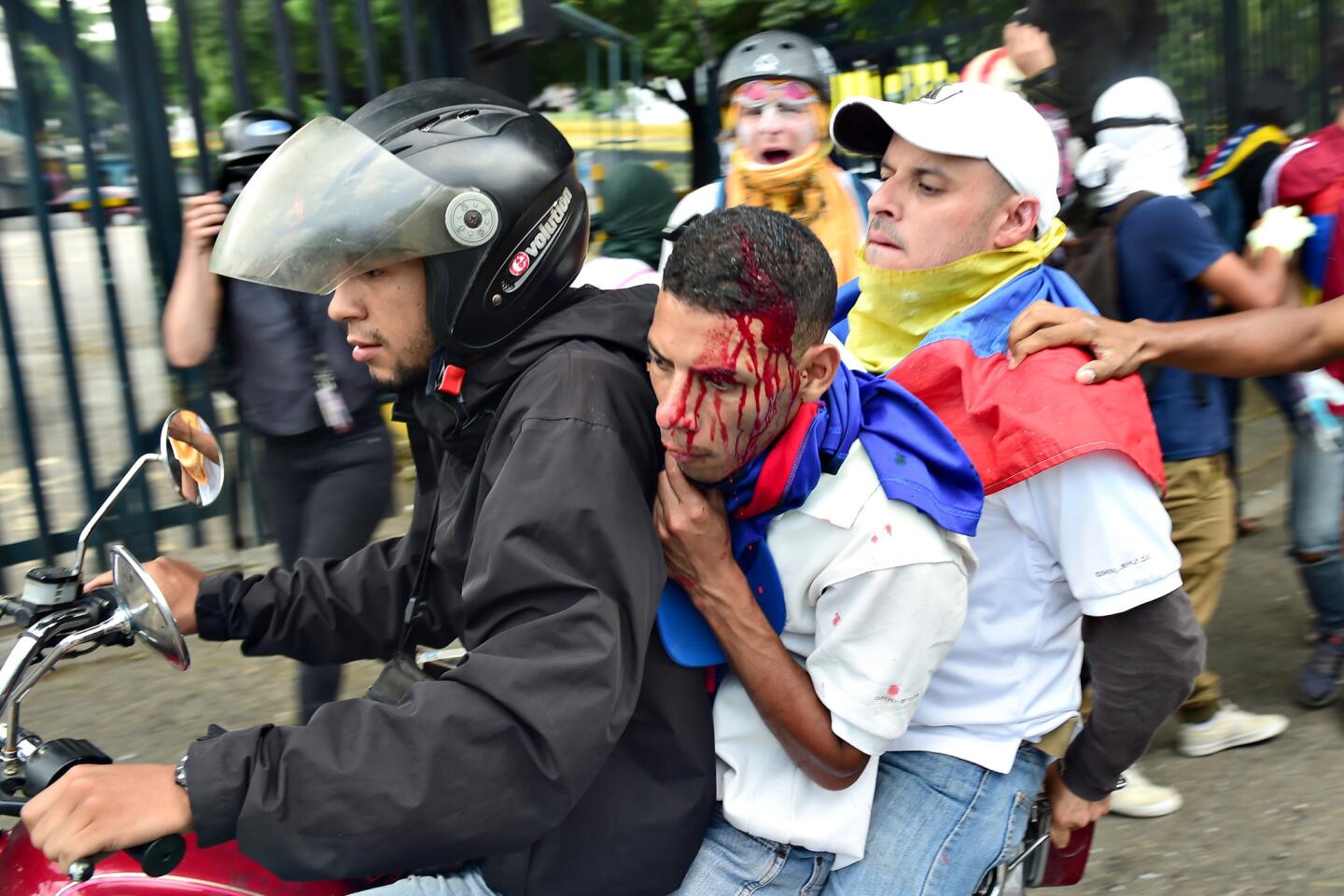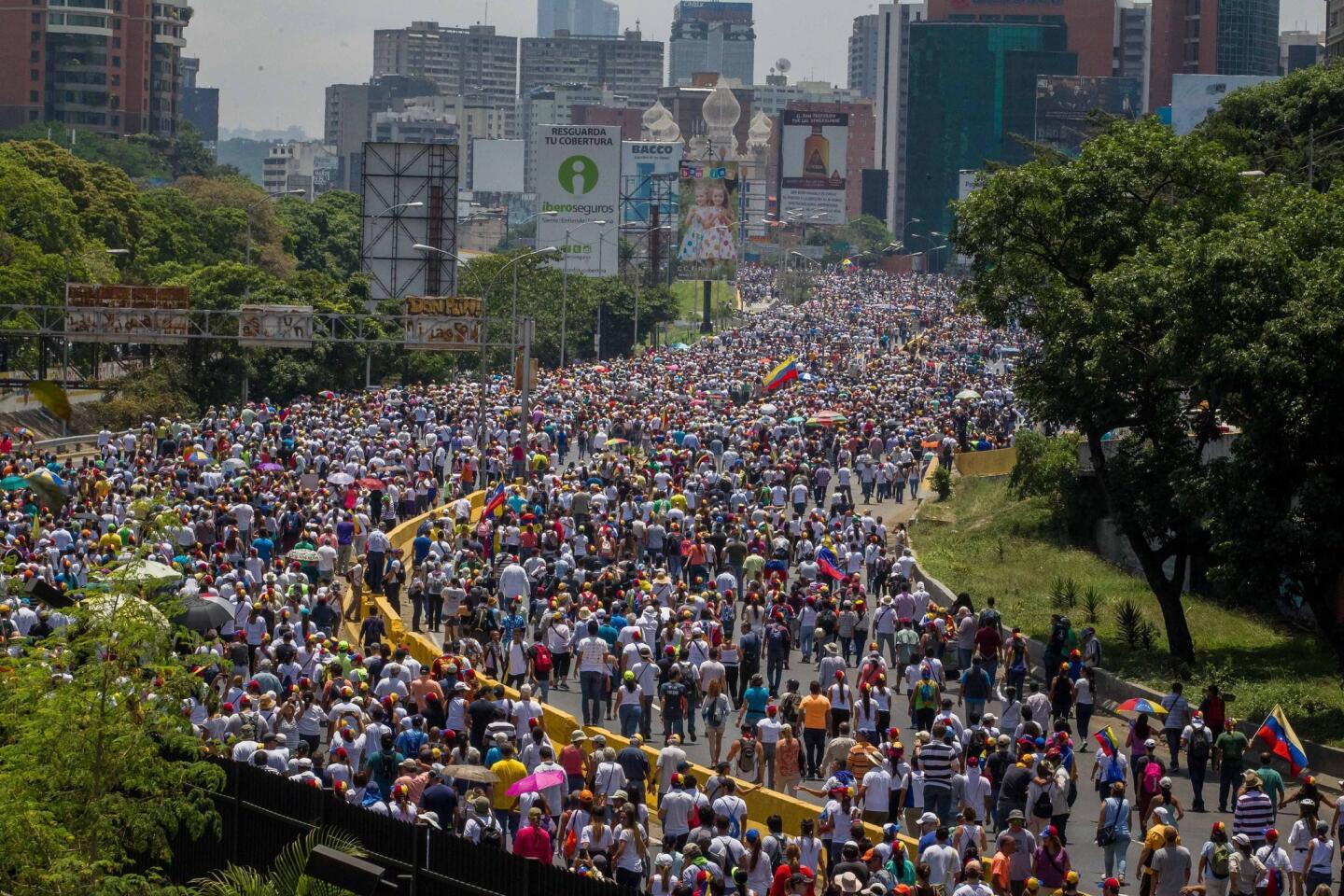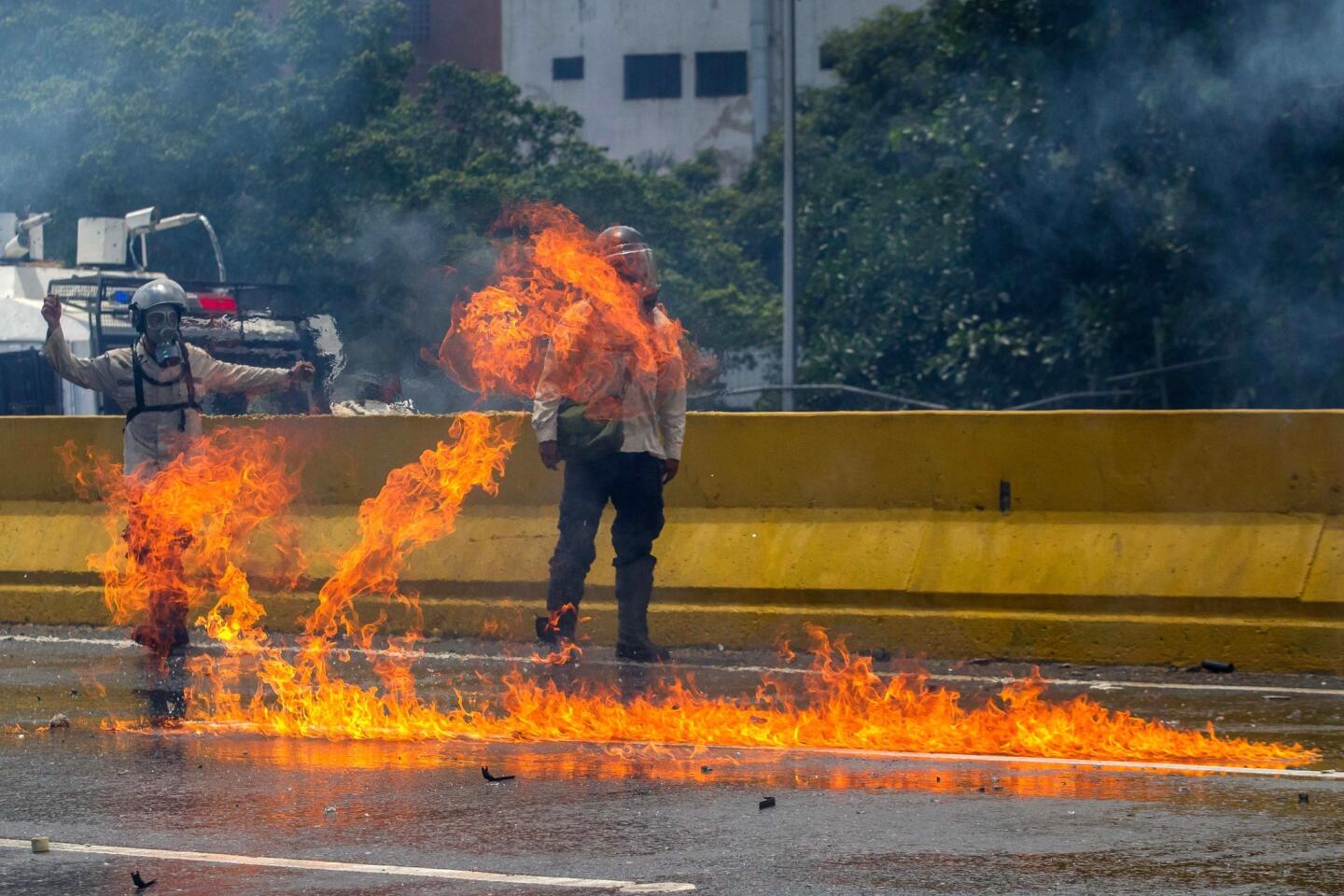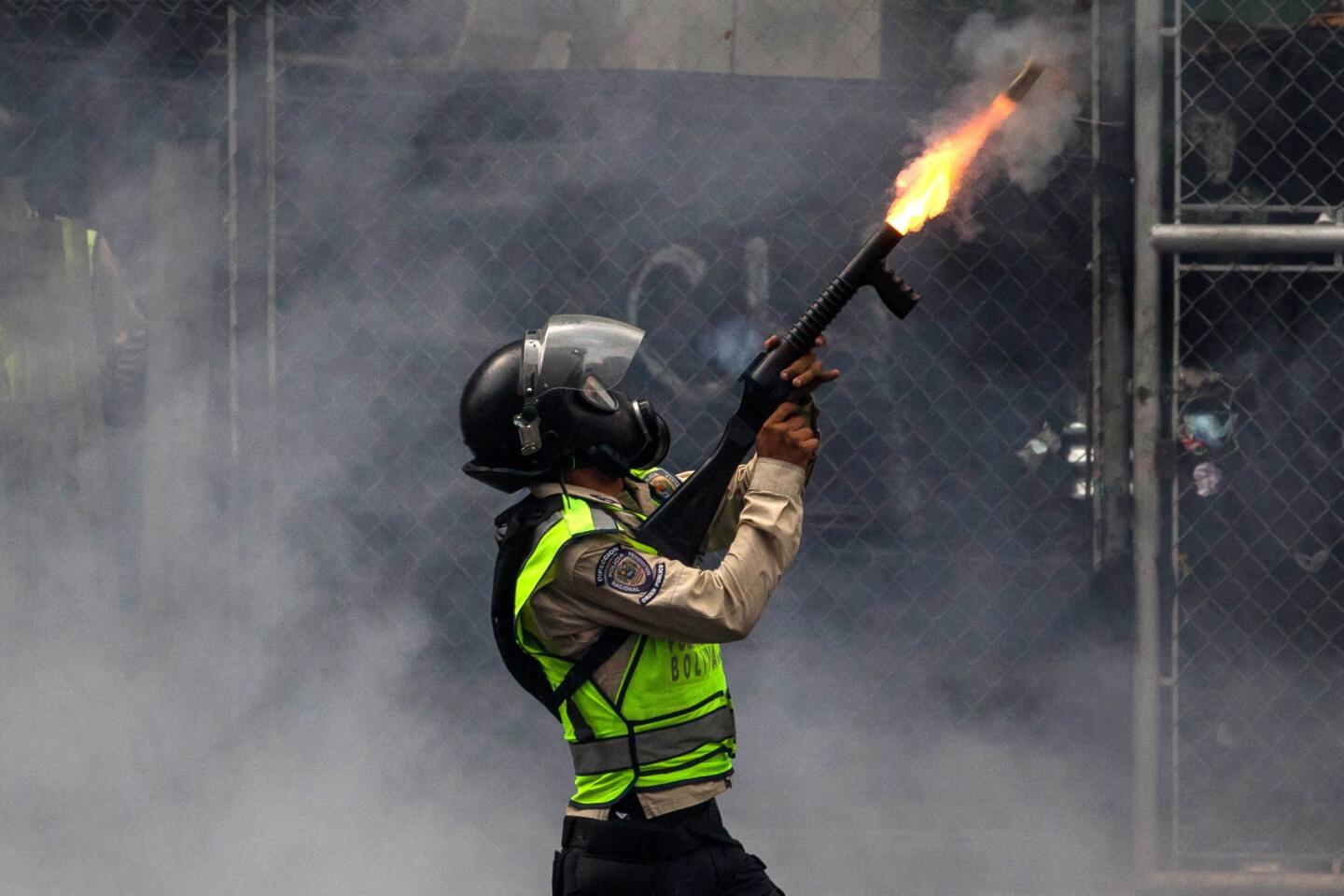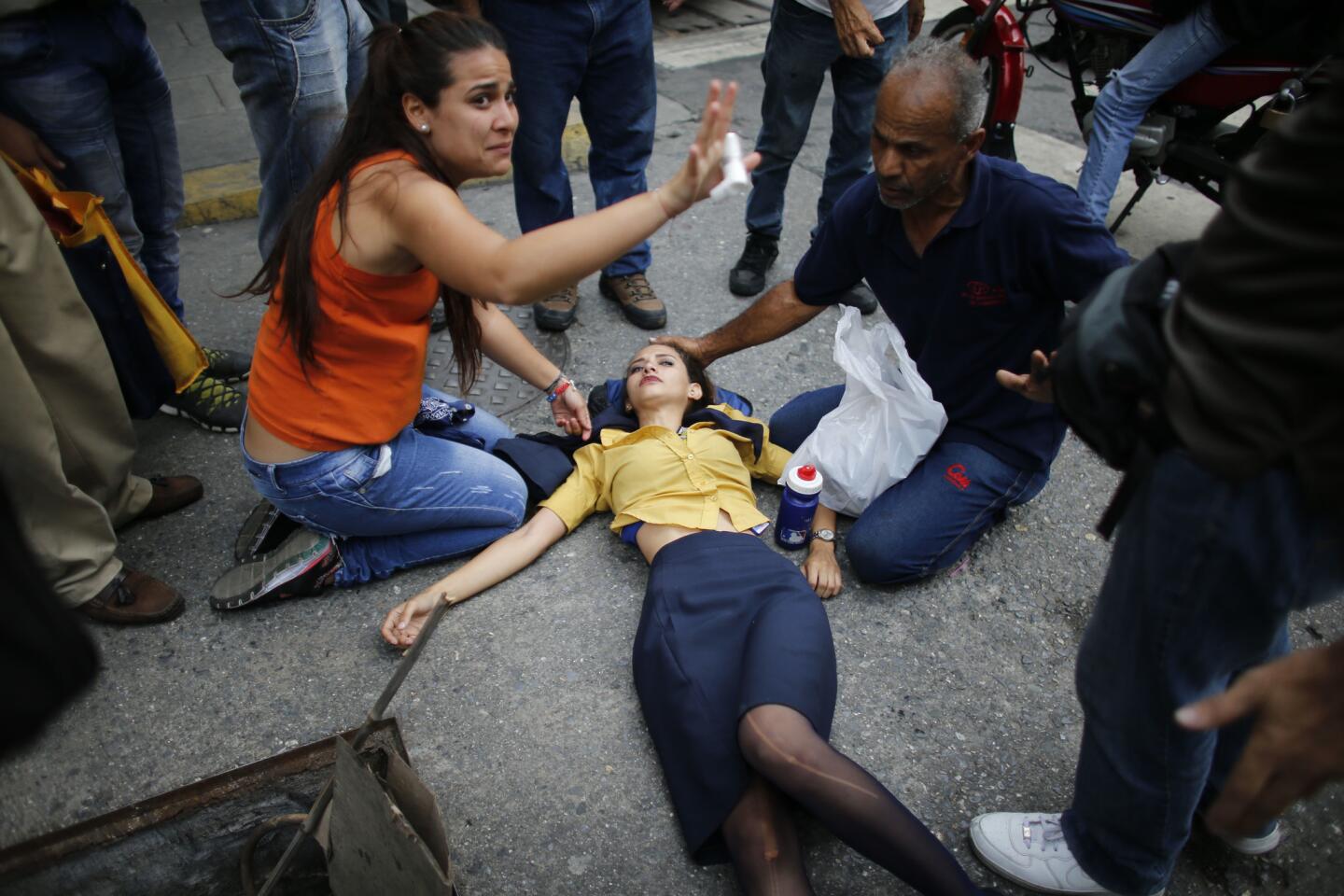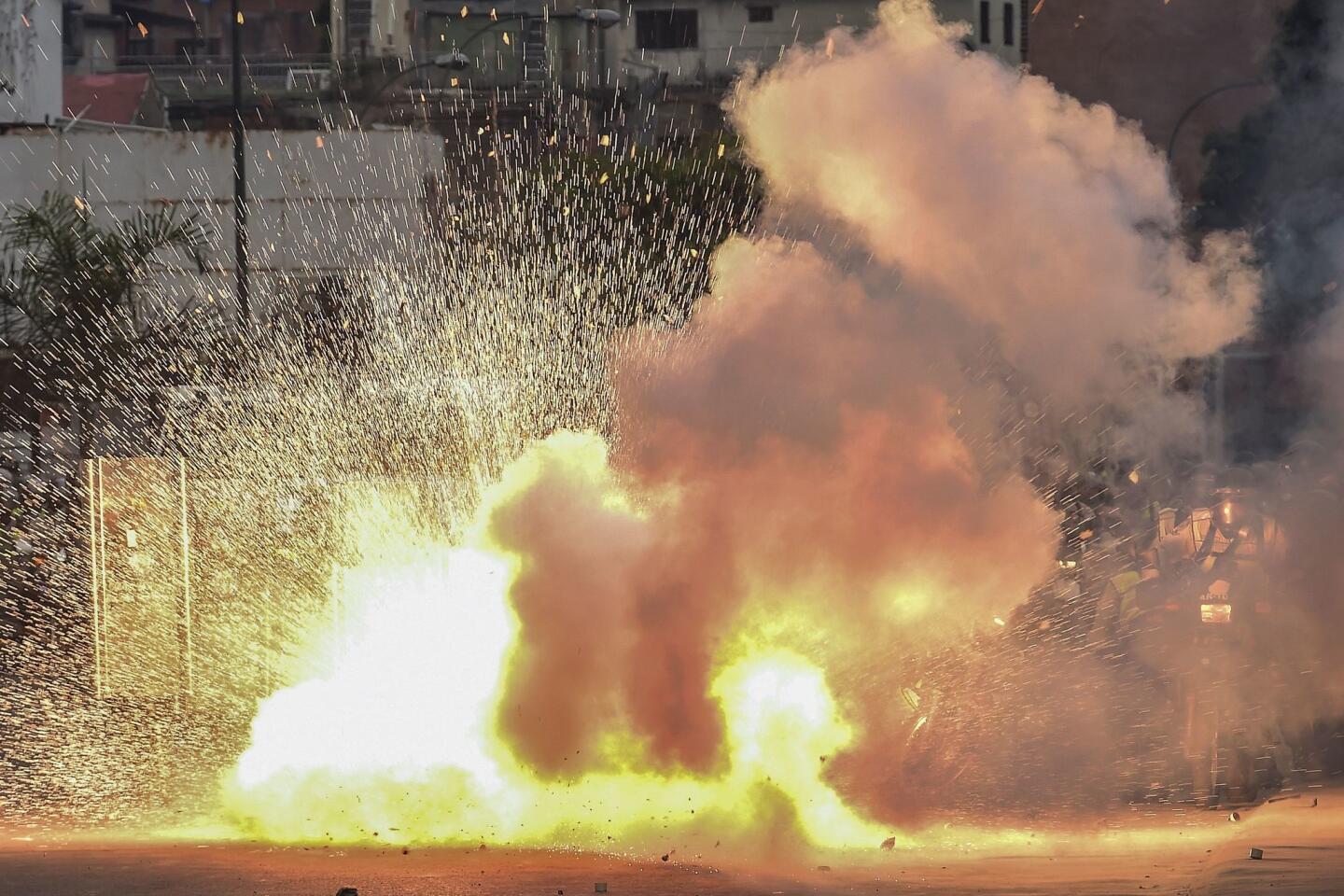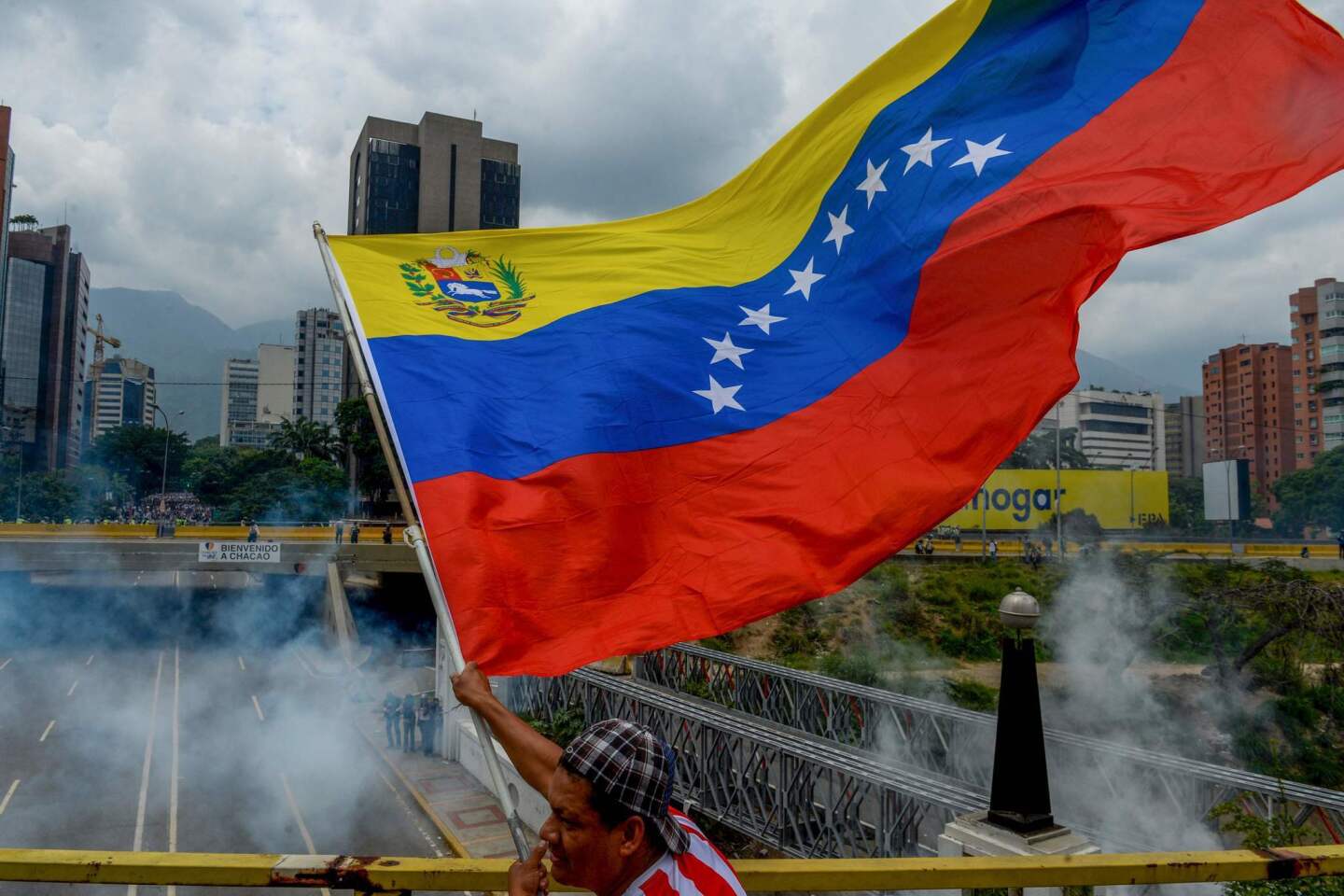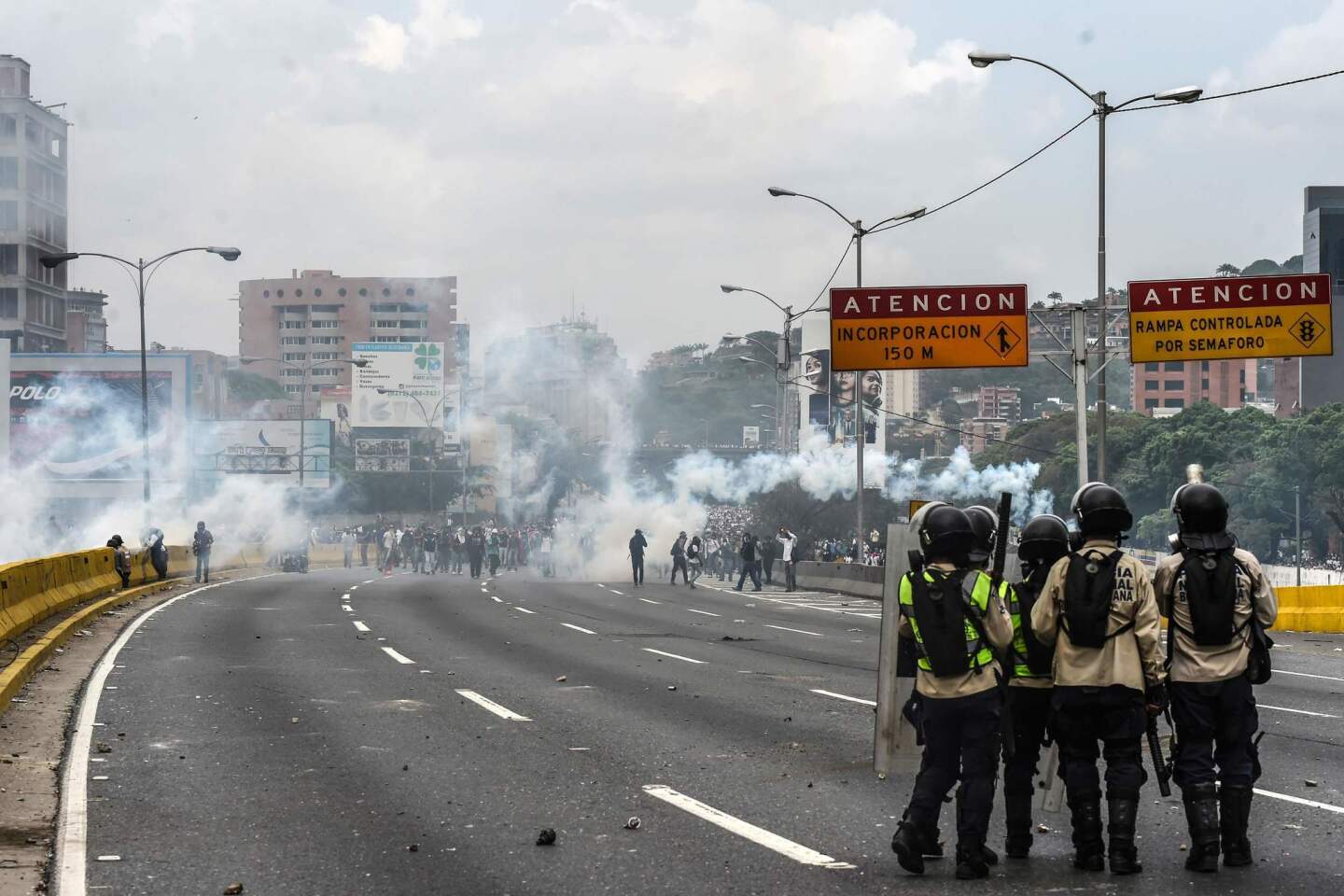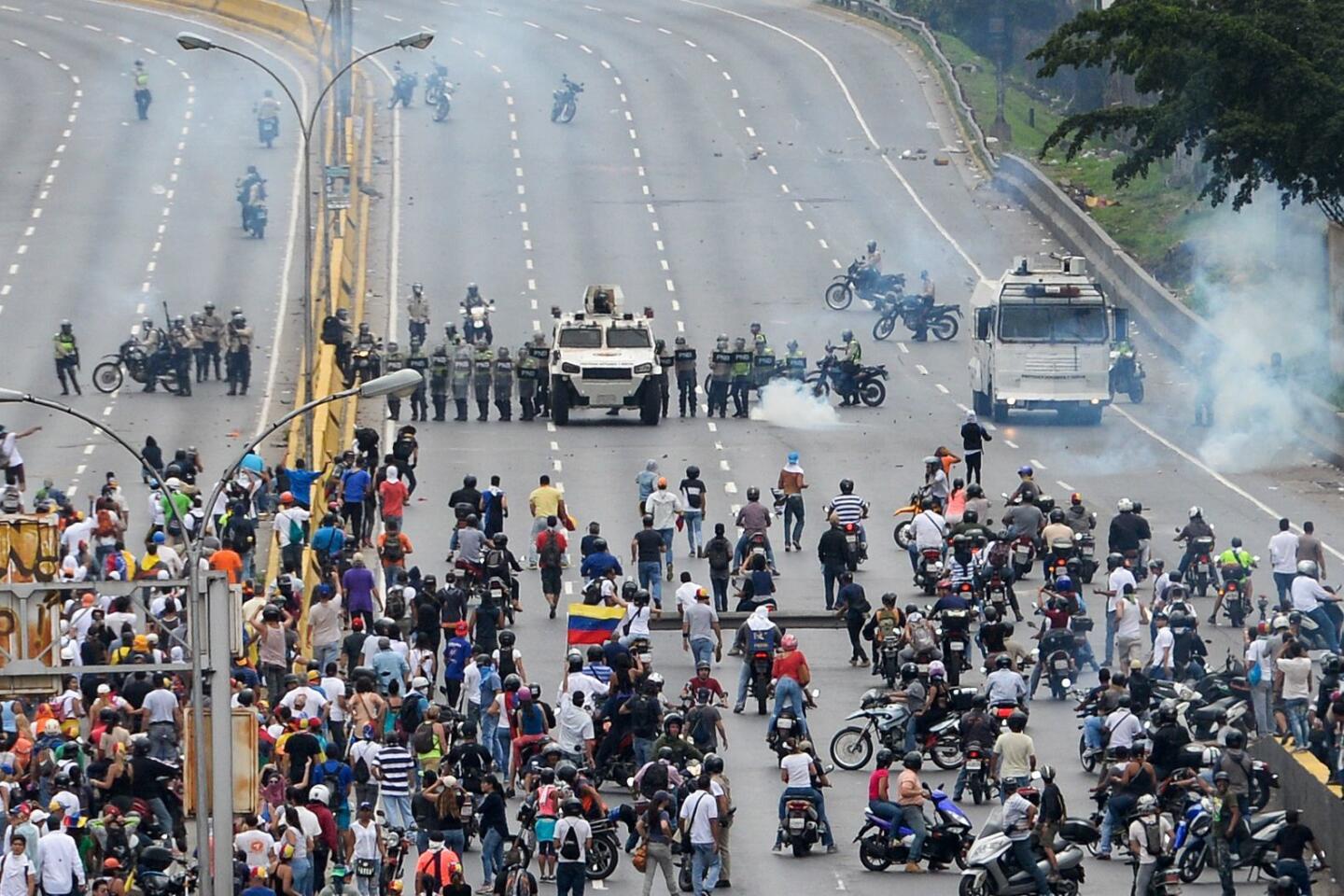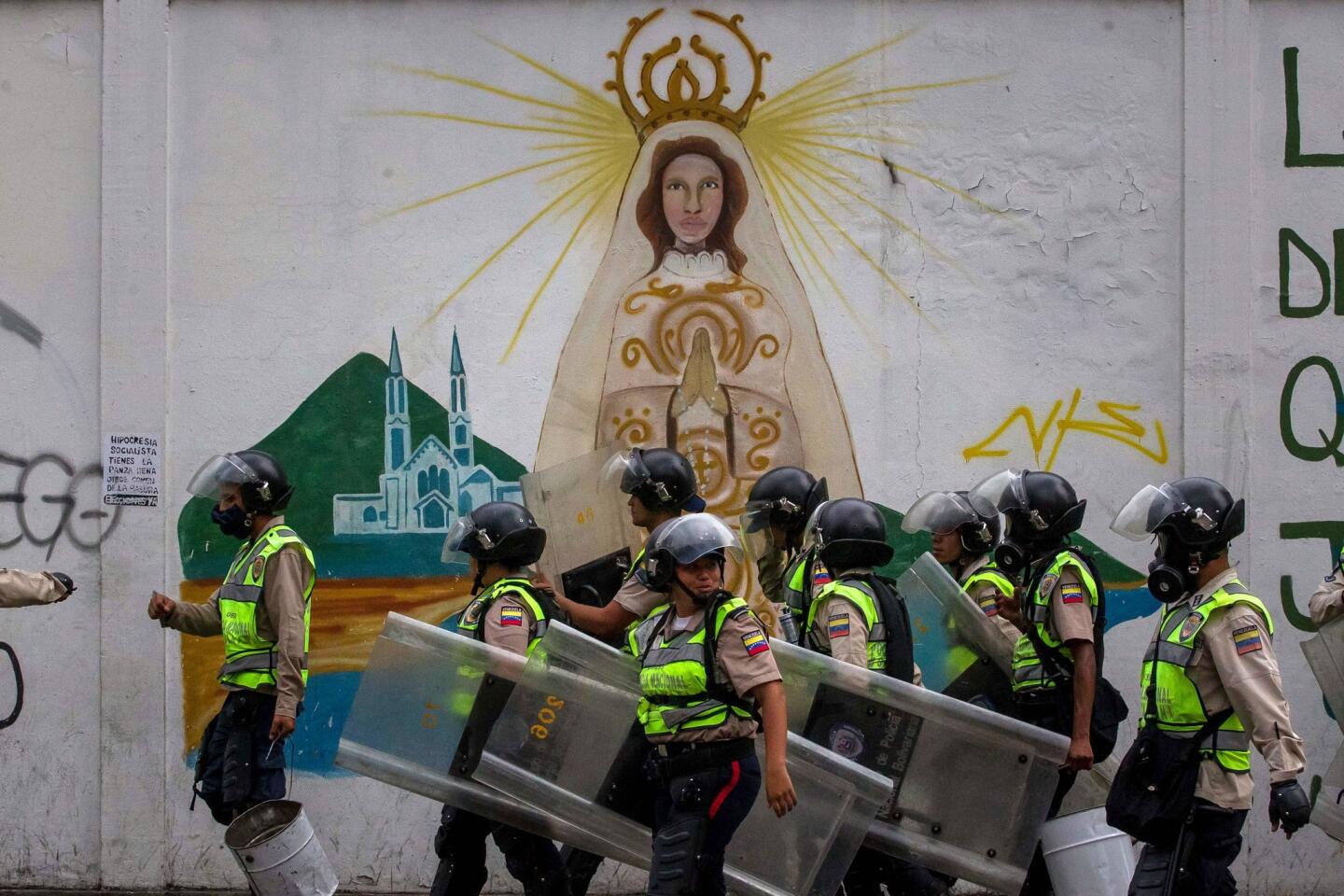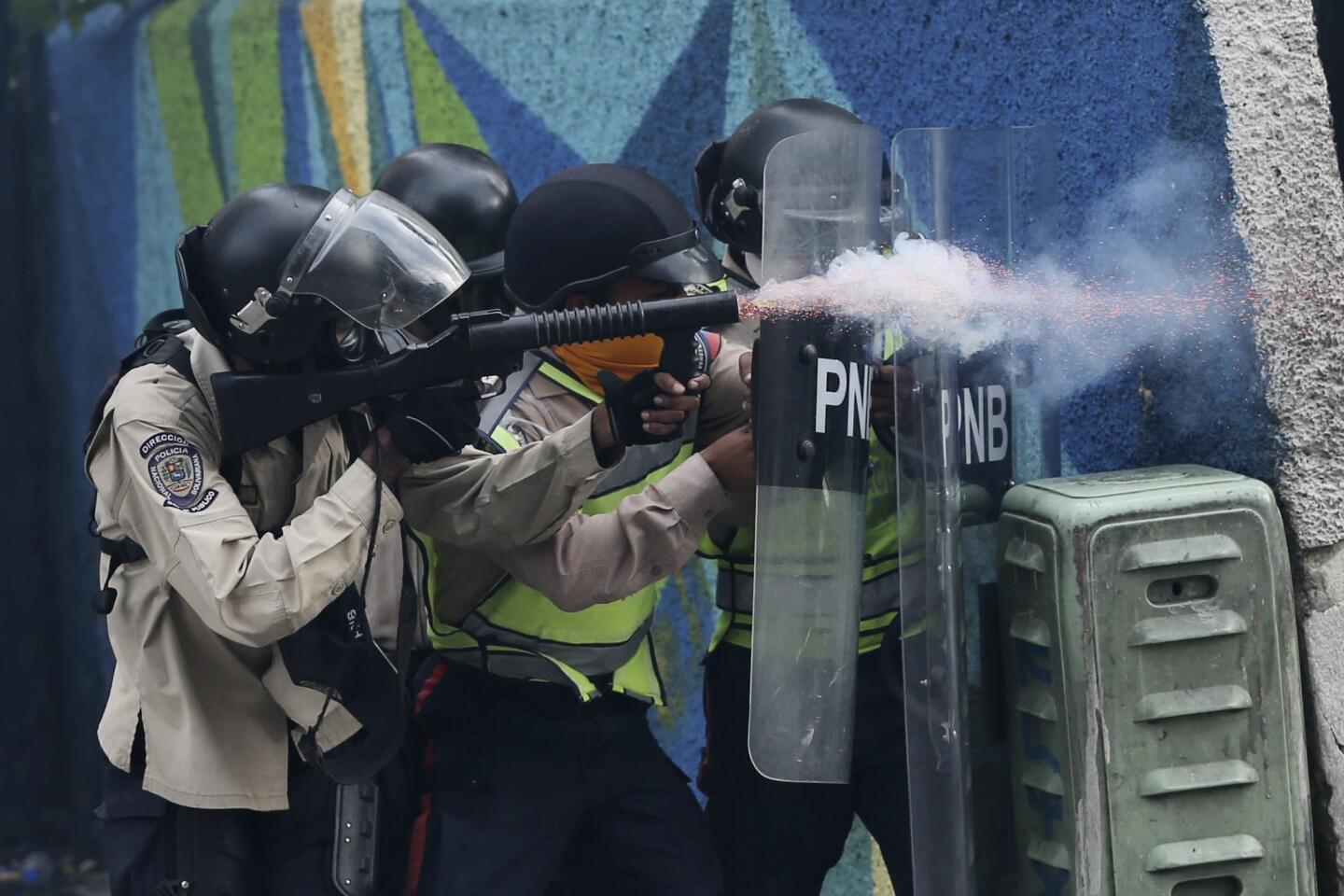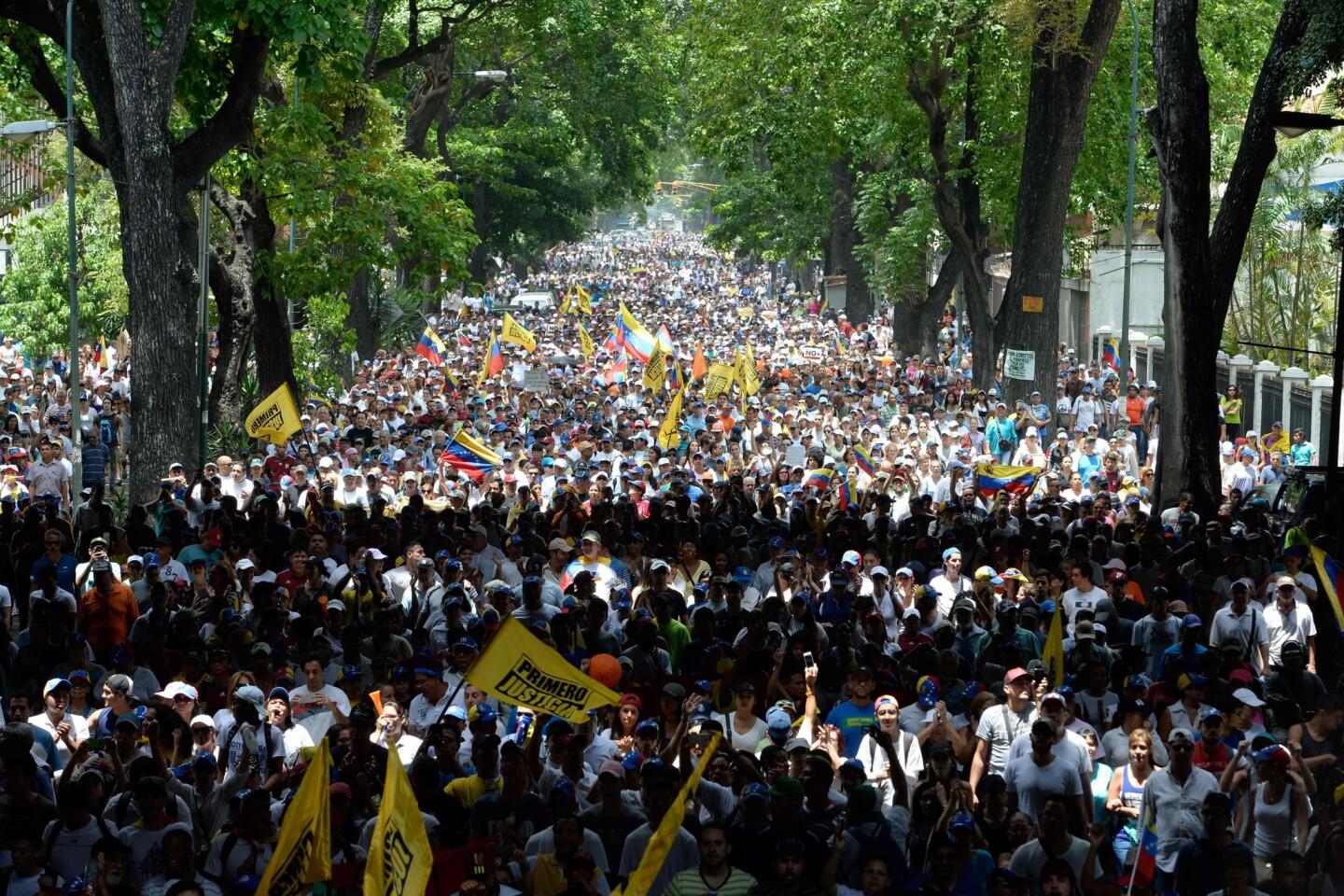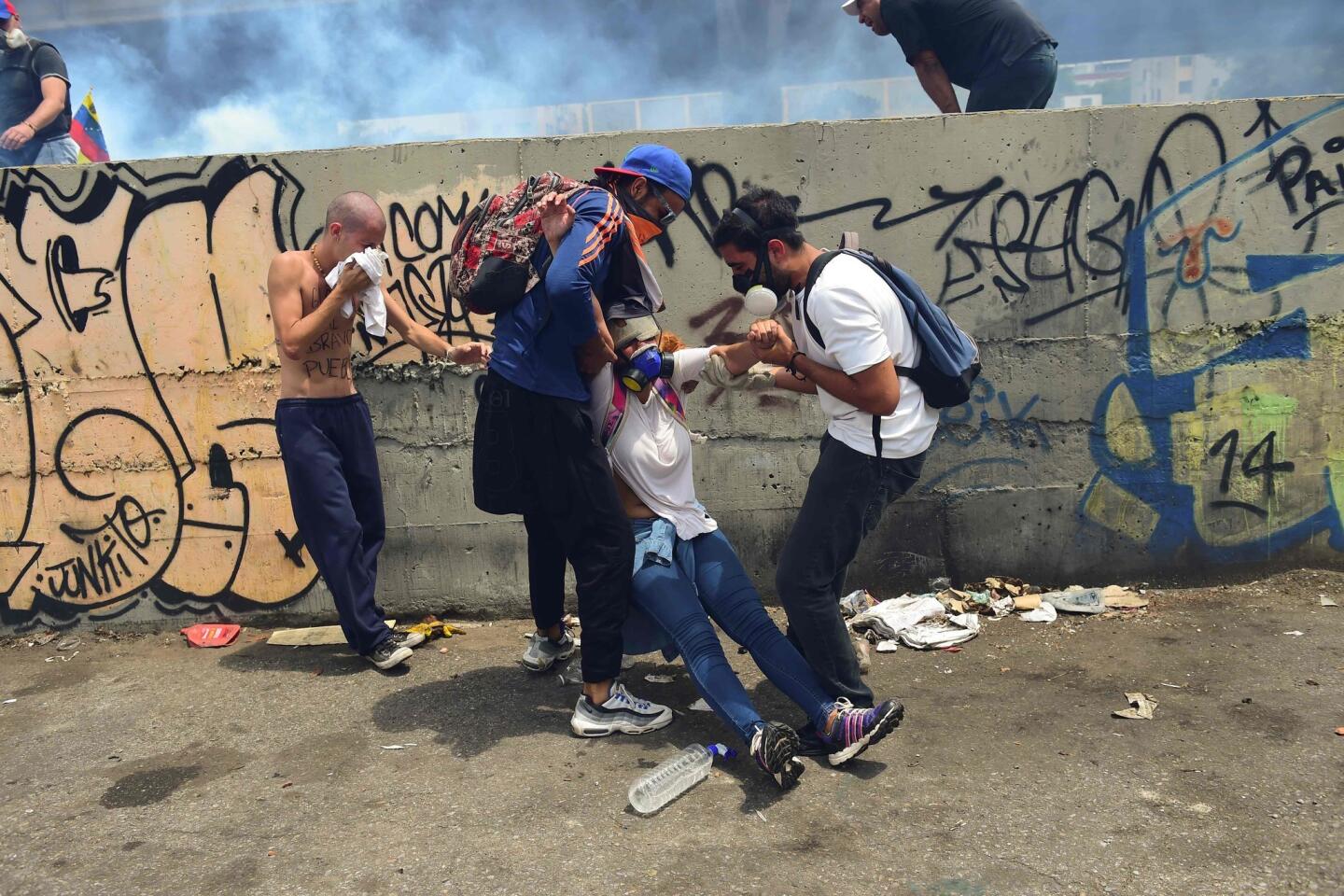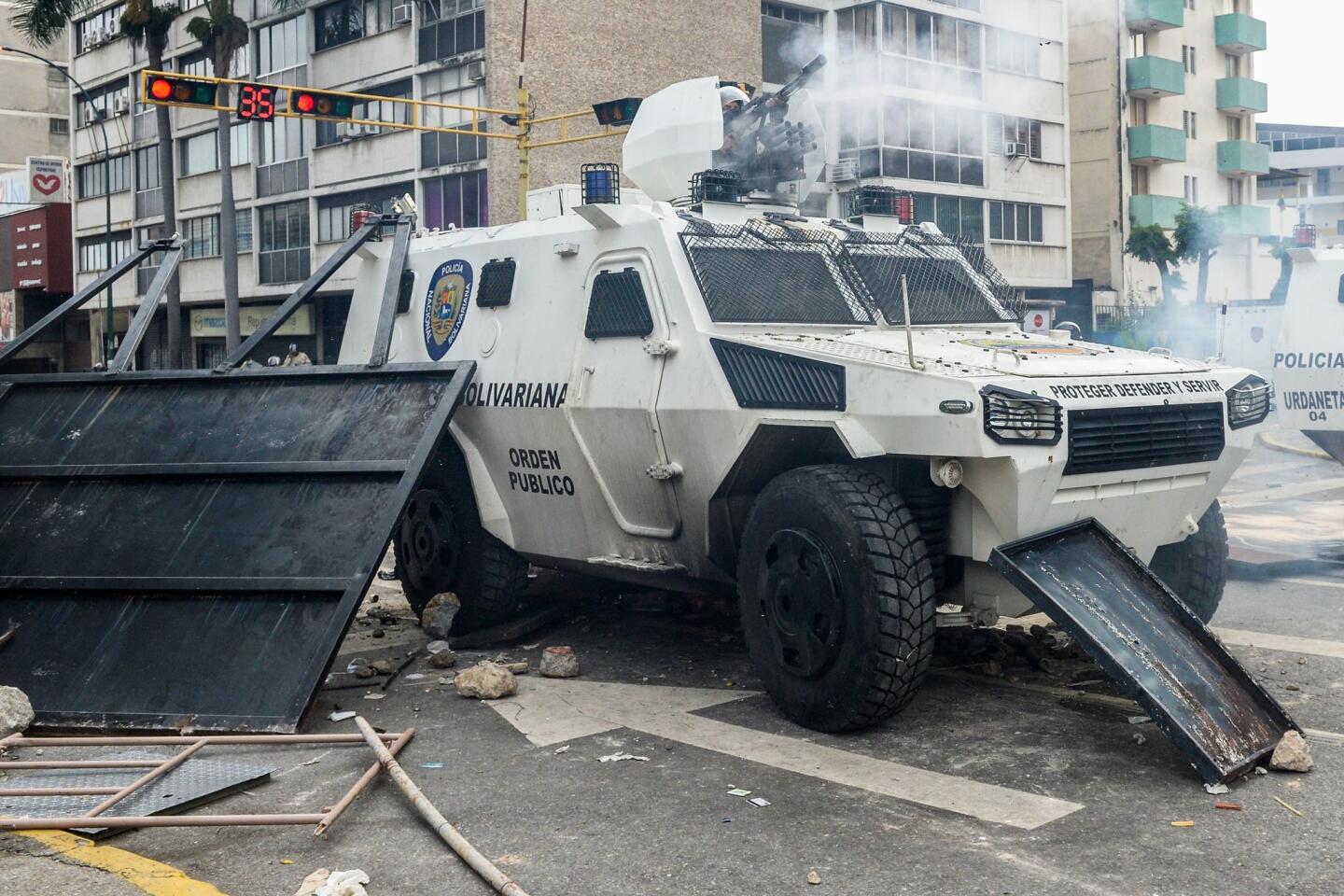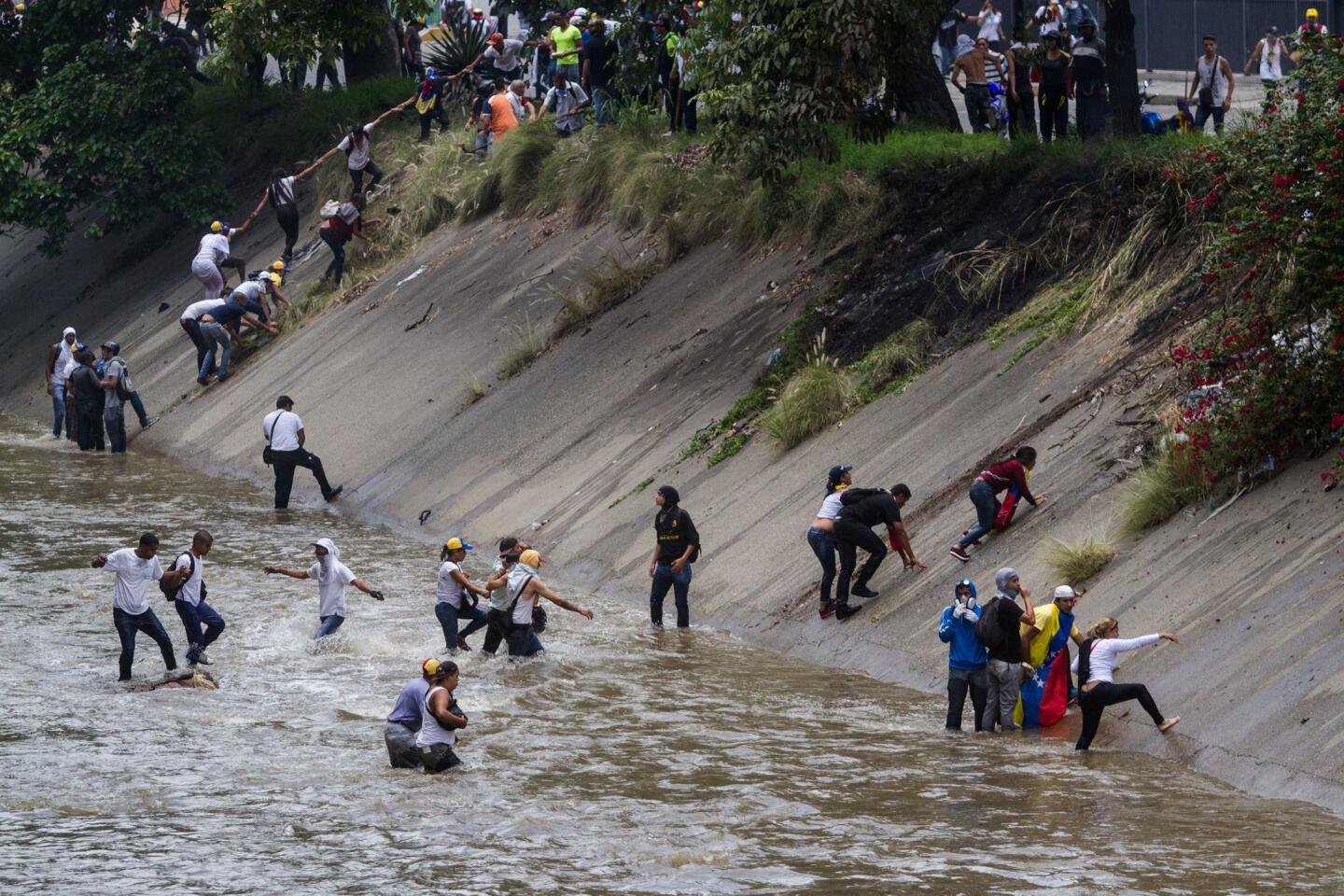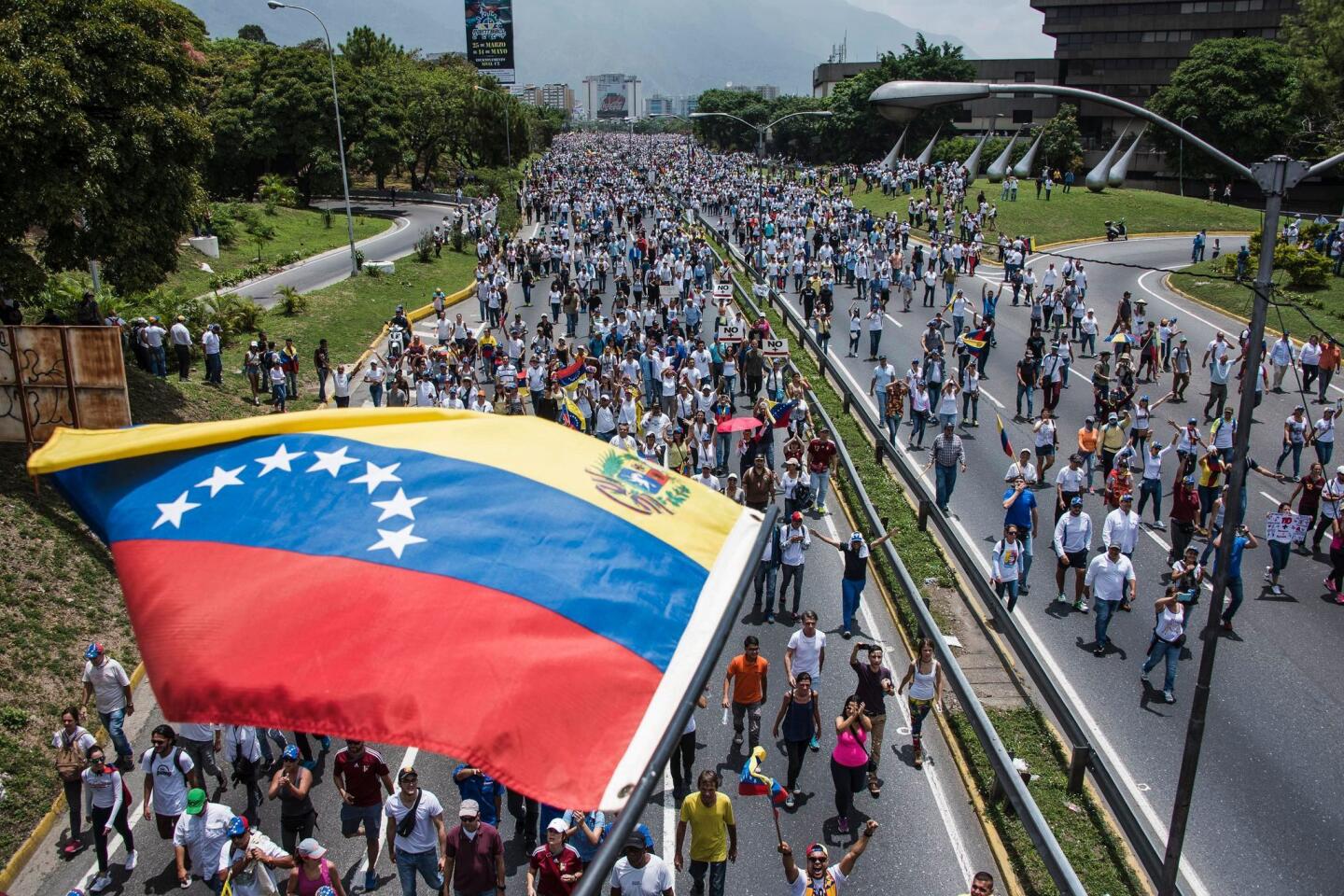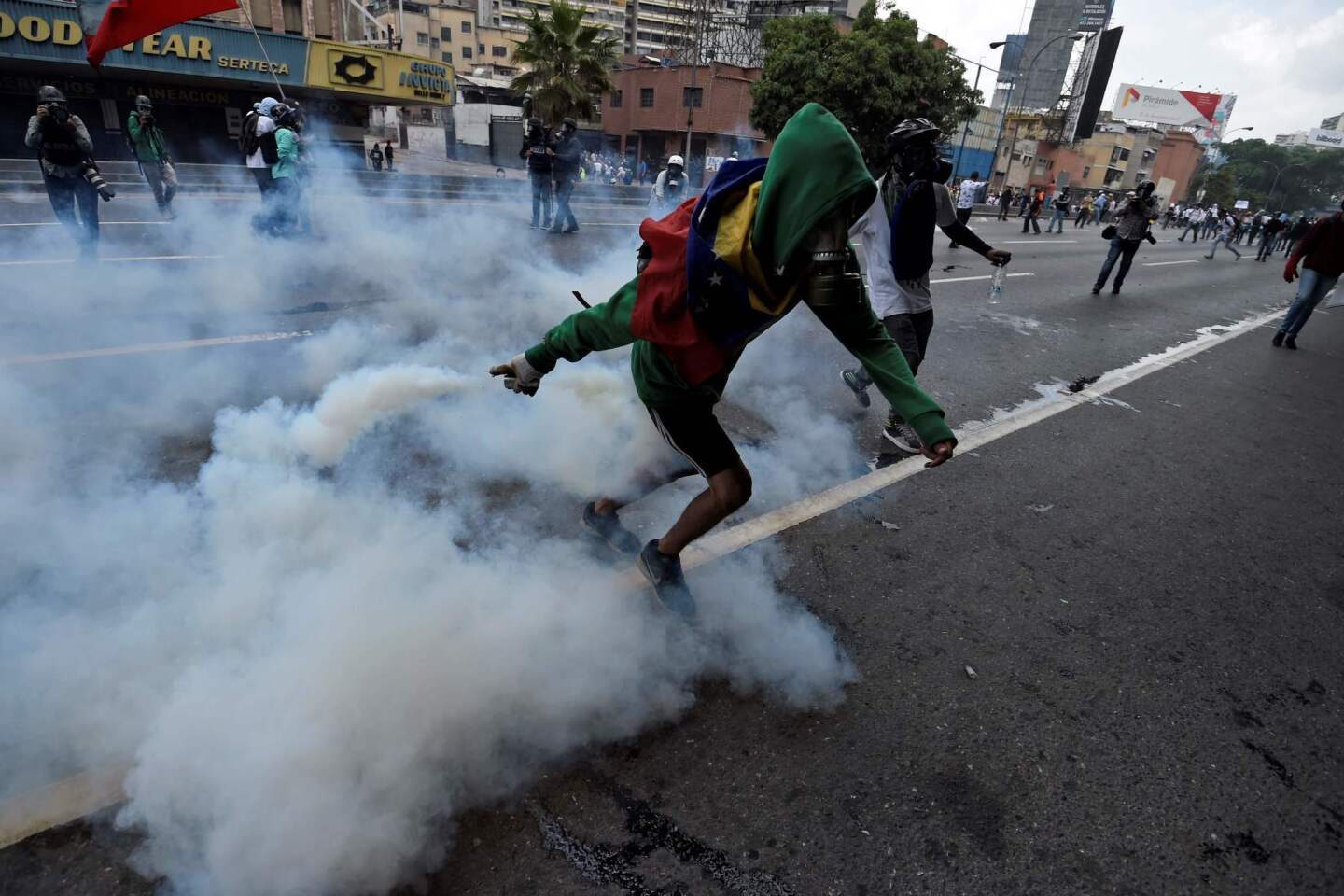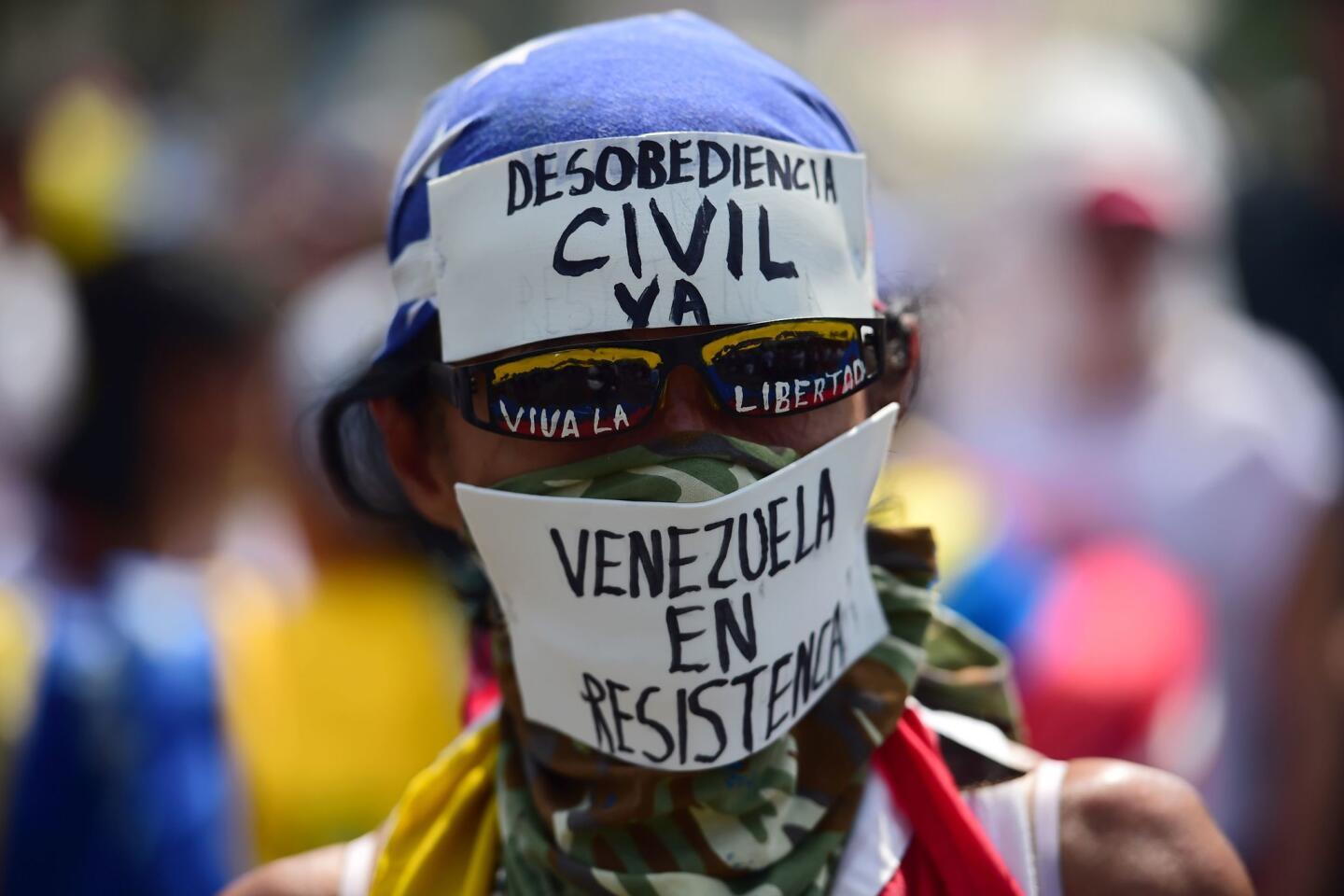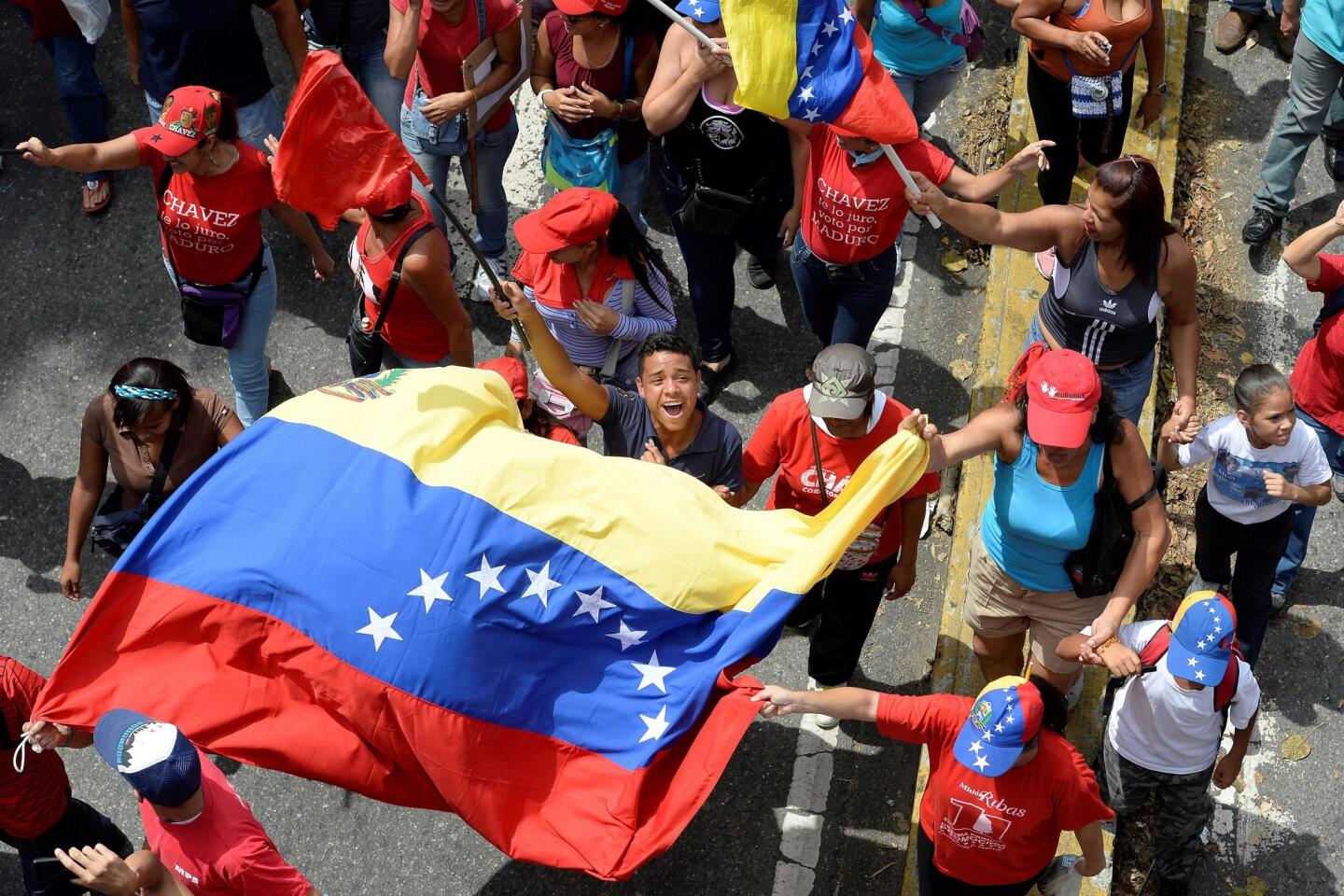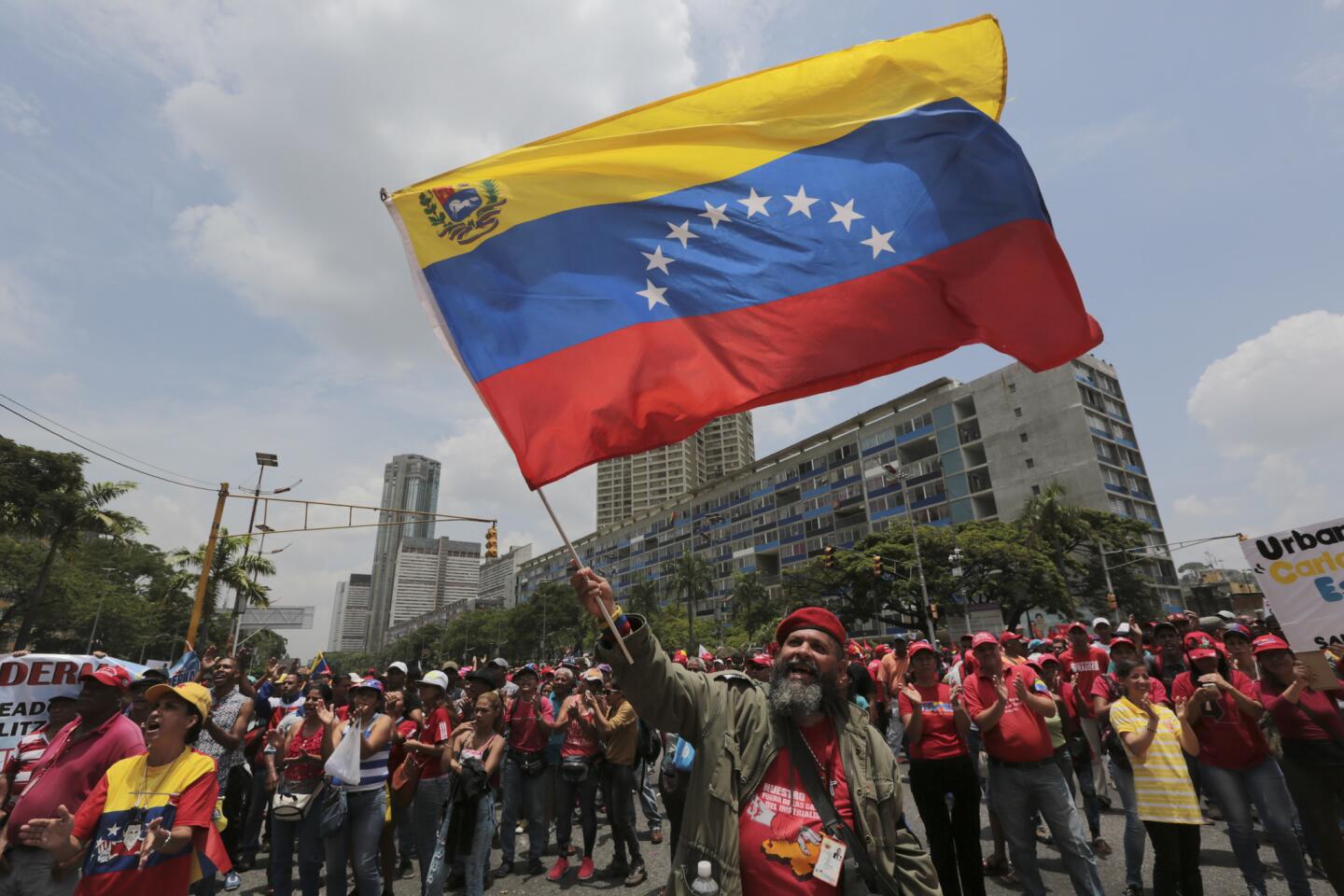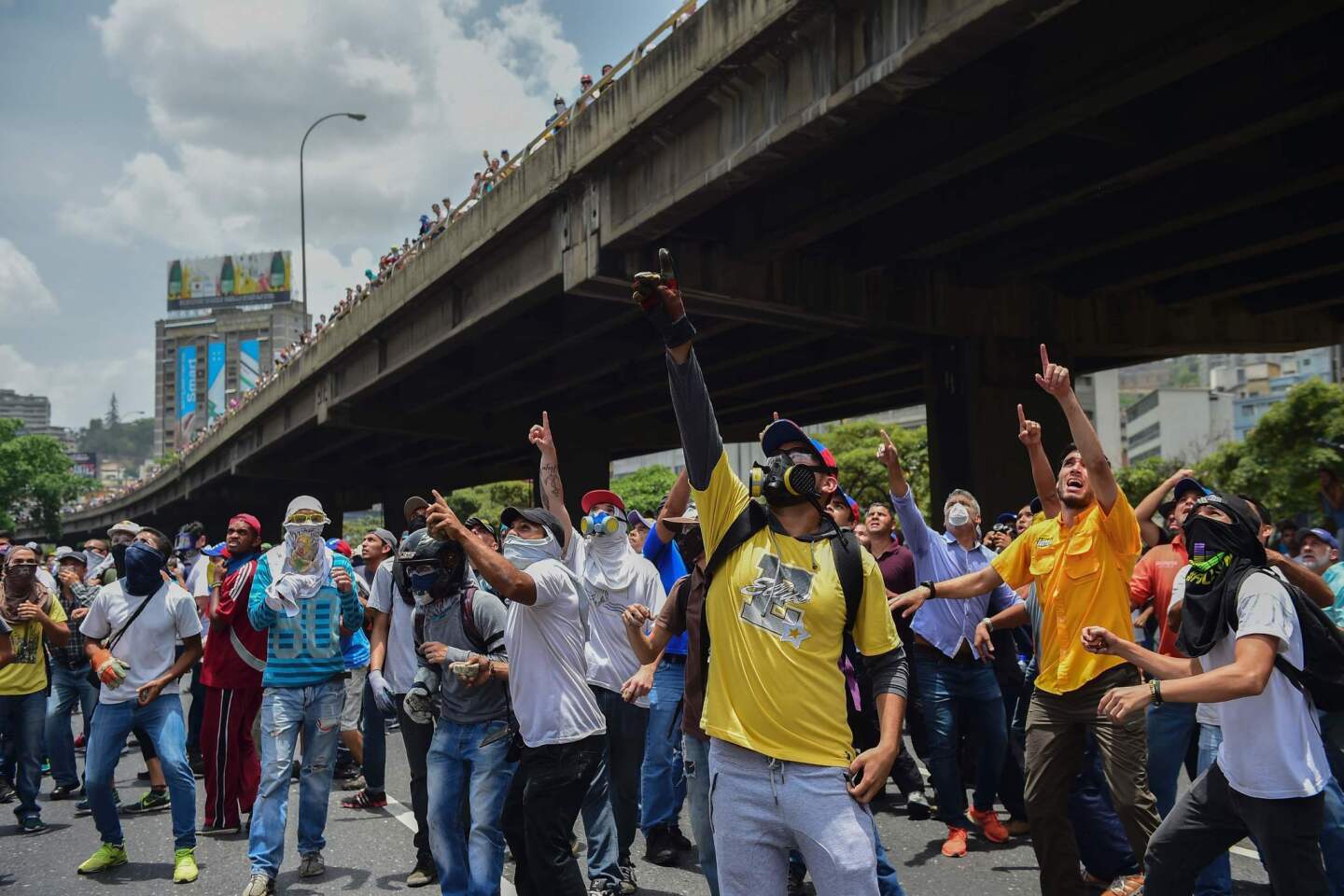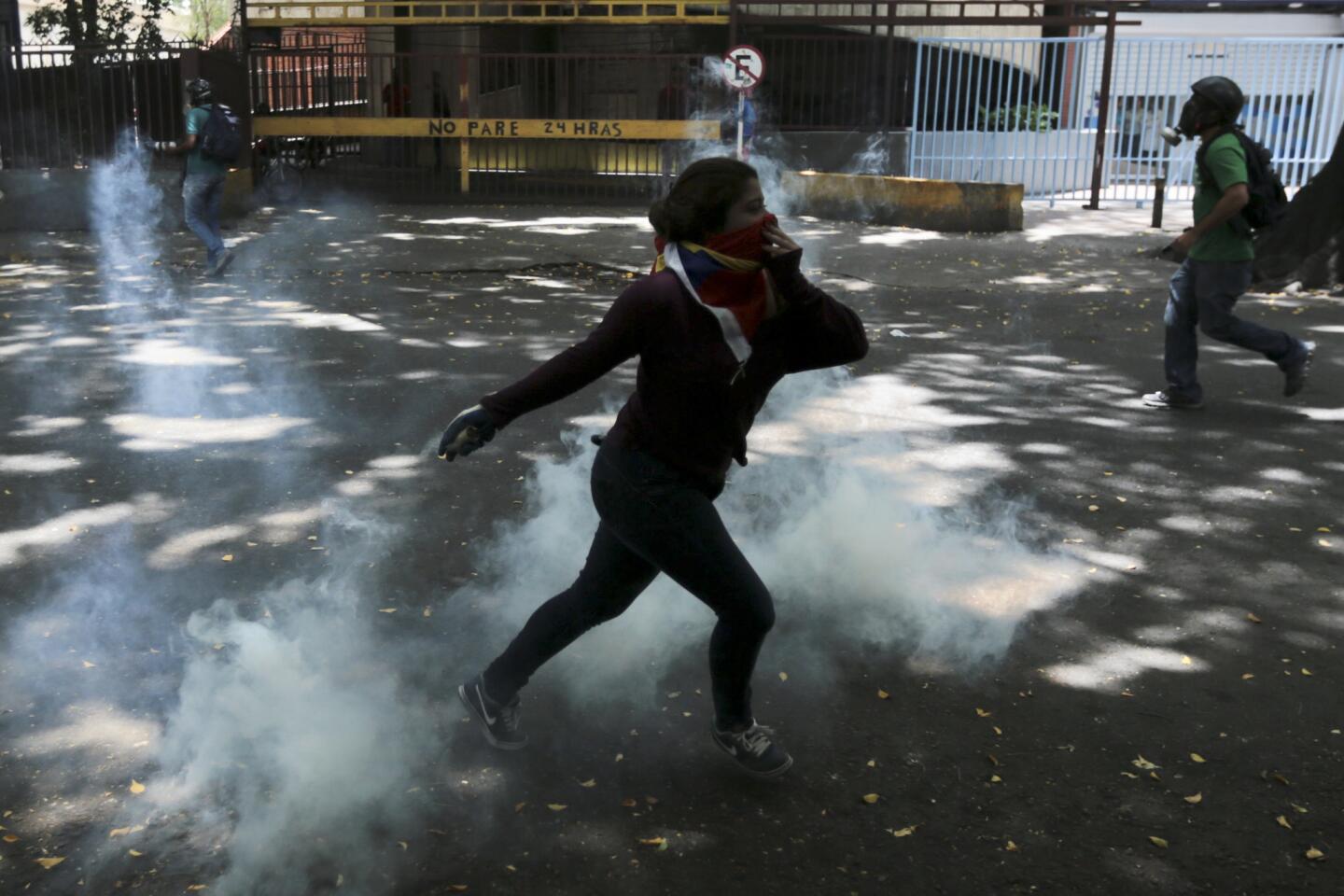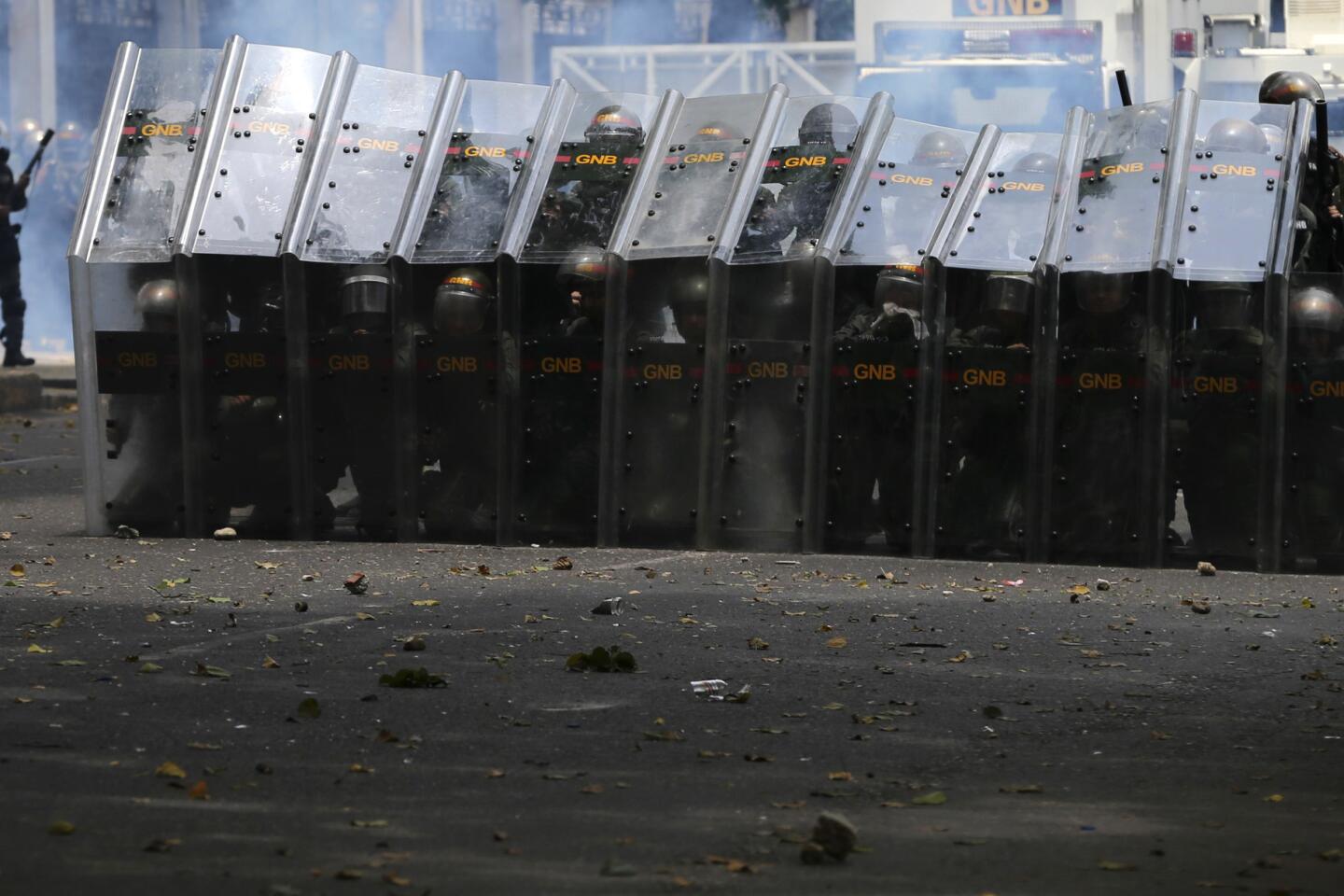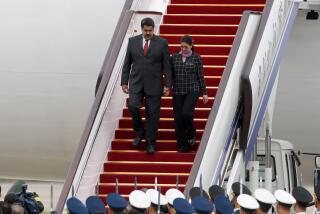Roiled by protests and soaring inflation, Venezuela is pushing out foreign companies
CARACAS, Venezuela — General Motors has become the latest multinational company to pull out of Venezuela after it says government authorities illegally seized its plant there this week.
In a statement released by GM on Thursday, the company said its factory had been “unexpectedly taken by the public authorities, preventing normal operation.” The company, which said its vehicles were also seized, vowed to take legal action amid a deepening political and economic crisis in the oil-rich South American nation.
The car manufacturer is one of a growing number of international firms to report major problems in Venezuela, which has recently been roiled by food scarcities, soaring inflation and weeks of bloody street protests calling for the removal of President Nicolas Maduro and his leftist government.
Production has slowed dramatically across manufacturing sectors because of a currency crisis that saw inflation reach an annual rate of 455% in February.
Auto production nationwide has ground almost to a halt — a paltry 293 cars were sold in March — because companies say they can’t access the dollars needed to import necessary parts and machinery.
While anti-government protesters blame Venezuela’s economic crisis on the policies of Maduro and his predecessor, Hugo Chavez, who expropriated millions of acres of land and nationalized hundreds of private businesses and foreign-owned assets, supporters of the government say the culprits are a drop in international oil prices as well as “corrupt” business leaders.
Maduro has accused GM and other foreign firms of intentionally slowing vehicle production in an effort to sabotage his government’s leftist economic policies. Union workers at the GM plant embraced that argument during a strike last year in which they accused the company of deliberately slowing assembly lines.
“This is the kind of thing that has been happening over the past 10 years,” said David Smilde, a Venezuelan expert at Tulane University. “The government’s narrative is that there is an economic crisis in Venezuela ... because they’re in an economic war with business.”
That hostile climate has resulted in the recent departures of several large multinational companies, including Clorox, which suspended its operations in Venezuela in 2014, and Bridgestone, the tire company, which divested in 2016. As soon as Kimberly Clark announced it was leaving last year, the government seized the company’s assets.
Other companies have stayed in Venezuela despite financial losses.
Pepsi, Coca-Cola and other companies have reported major losses there, with Coca-Cola briefly suspending production last year because of a sugar shortages. Similarly, McDonald’s was forced to suspend sales of Big Macs because there wasn’t reliable access to beef.
The government’s narrative is that there is an economic crisis in Venezuela ... because they’re in an economic war with business.
— David Smilde, a Venezuelan expert at Tulane University
GM has had a presence in Venezuela since 1948, and says it employed 2,678 workers at its factory in the industrial hub of Valencia and another 3,900 people at dozens of dealerships around the country. It’s unclear how many of those workers were being paid, given the decline in production. The company said it would pay separation benefits to laid-off workers according to Venezuelan law.
Venezuelan officials did not respond to requests for comment about why they seized control of the plant. News of the seizure was not widely covered in the Venezuelan press, although a newspaper in Valencia said authorities may have frozen GM’s Venezuelan bank accounts along with taking its property.
Analysts said the withdrawal of another international firm could further hurt Venezuela, where the number of companies that manufacture products has fallen from 12,700 to 4,000 in just two decades and where a reduction in oil prices has hurt an economy that depends almost entirely on oil exports.
In recent years, imports have slowed because there simply is not enough money to pay for them. The chronic shortages of food and other goods have helped buoy support for the country’s political opposition. Maduro has responded to those challenges with strongman techniques, consolidating presidential powers and indefinitely delaying elections.
Venezuela has been swept by the fiercest protests in years since April 4, when the Supreme Court announced it had stripped the opposition-controlled Congress of its powers. The domestic and international outcry was so intense that some of those powers were quickly reinstated, but the street demonstrations have continued, with tens of thousands of people taking to the streets Wednesday with signs that read “Maduro out” and “Down with dictatorship.”
Three people died in those clashes, including a solider who was shot by protesters and a teenager who was killed by a pro-government militia.
The protests continued Thursday in Caracas and other cities across the country as opposition leaders called on more people to join the fight.
“We call on all Venezuelan people to mobilize,” said Henrique Capriles, the governor of Miranda state, who earlier this month was formally banned from the government for 15 years, but who has so far refused to step down.
Many Venezuelans opted to stay home from work and school on Thursday to avoid being caught up in the clashes, which have resulted in eight deaths, more than 200 injuries and 538 arrests this month.
Miguel Tinker Salas, a Latin America expert at Pomona College, said he believes opposition can only keep up street protests for so long before the public grows weary of the violence.
“If the end game is simply to continue the protest until the government falls, it won’t work,” he said. “You have to have dialogue, you have to have negotiations. Both sides need to recognize the other.”
Times staff writer Linthicum reported from Mexico City and special correspondent Mogollon from Caracas.
Twitter: @katelinthicum
UPDATES:
2:40 p.m.: This article was updated with additional detail about the closures of businesses and protests.
This article was originally published at 9:10 a.m.
More to Read
Sign up for Essential California
The most important California stories and recommendations in your inbox every morning.
You may occasionally receive promotional content from the Los Angeles Times.
